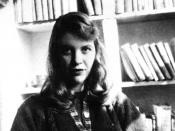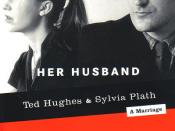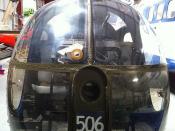A biography of a talented poet, with description of his major works
Edward James Hughes is one of the most outstanding living British poets. In 1984 he was awarded the title of the nation's Poet Laureate. He came into prominence in the late fifties and early sixties, having earned a reputation of a prolific, original and skilful poet, which he maintained to the present day.
Ted Hughes was born in 1930 in Yorkshire into a family of a carpenter. After graduating from Grammar School he went up to Cambridge to study English, but later changed to Archaeology and Anthropology. At Cambridge he met Sylvia Plath, whom he married in 1956. His first collection of poems Hawk in the Rain was published in 1957. The same year he made his first records of reading of some Yeats's poems and one of his own for BBC Third Programme. Shortly afterwards, the couple went to live to America and stayed there until 1959.
His next collection of poems Lupercal (1960) was followed by two books for children Meet My Folks (1961) and Earth Owl (1963). Selected Poems, with Thom Gunn (a poet whose work is frequently associated with Hughes's as marking a new turn in English verse), was published in 1962. Then Hughes stopped writing almost completely for nearly three years following Sylvia Plath's death in 1963 (the couple had separated earlier), but thereafter he published prolifically, often in collaboration with photographers and illustrators. The volumes of poetry that succeeded Selected Poems include Wodwo (1967), Crow (1970), Season Songs (1974), Gaudete (1977), Cave Birds (1978), Remains of Elmet (1979) and Moortown (1979).
At first the recognition came from overseas, as his Hawk in the Rain (1957) was selected New York's Poetry Book Society's Autumn Choice and later the poet was awarded Nathaniel Hawthorn's...


